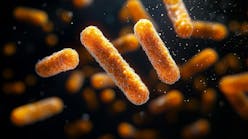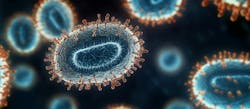New findings about COVID-19 variant fuel worries about vaccine resistance
Scientists in the United Kingdom reported that a small number of B117 variants have developed the E484K mutation thought to help SARS-CoV-2 partly evade immunity, and another U.K. group of researchers said their lab experiments suggest the mutation added to B117 may dampen the impact of vaccination after one dose, according to a news report from the Center for Infectious Disease Research and Policy (CIDRAP) at the University of Minnesota.
The findings on the E484K mutation in B117 come from a Public Health England update on the variant. Overall, the standard variant continues to dominate in all of the country's regions, with attack rates that are 25 percent to 40 percent higher than the original coronavirus.
It added that the latest sequencing data as of January 26 revealed the E484K mutation in 11 of the B117 sequences and that initial analysis suggests more than one acquisition event. The same mutation is found in two other variants of concern from two other continents, B1351 and P1.
Separately, researchers based at the University of Cambridge reported preliminary findings that raise concerns about how well the Pfizer-BioNTech vaccine would protect against B117 carrying the E484K mutation. For their experiments, they did lab studies using serum from people who had received their first dose of the Pfizer-BioNTech vaccine to see how antibodies reacted against B117 variants.
Overall, the vaccine is likely to be effective against B117, though its efficacy is somewhat affected. Though they found wide variation among individuals, on average B117 required a two-fold increase in serum antibody concentration to neutralize the virus. However, when researchers added the E484K mutation, substantially higher antibody levels—on average, a 10-fold increase—were needed for neutralization.





